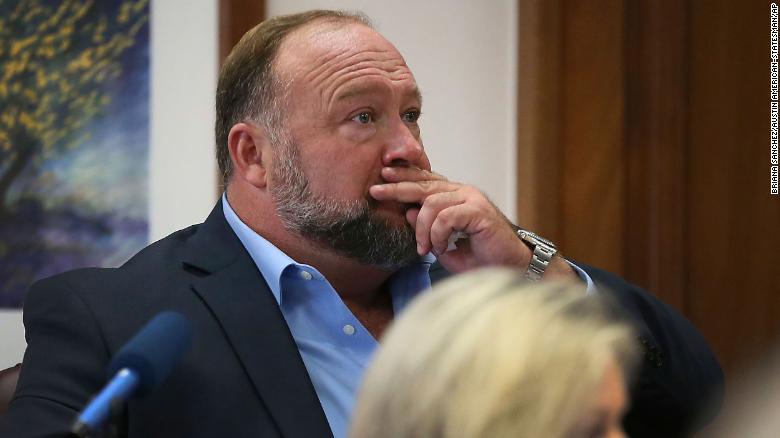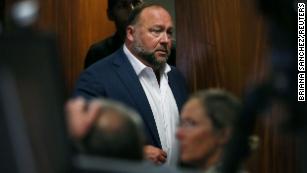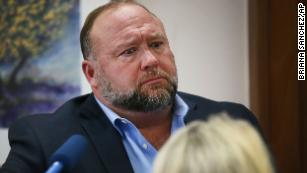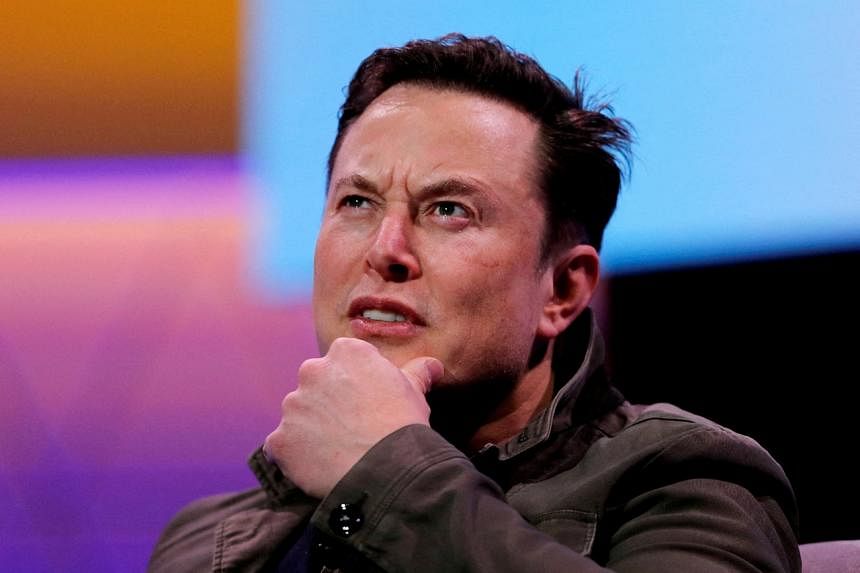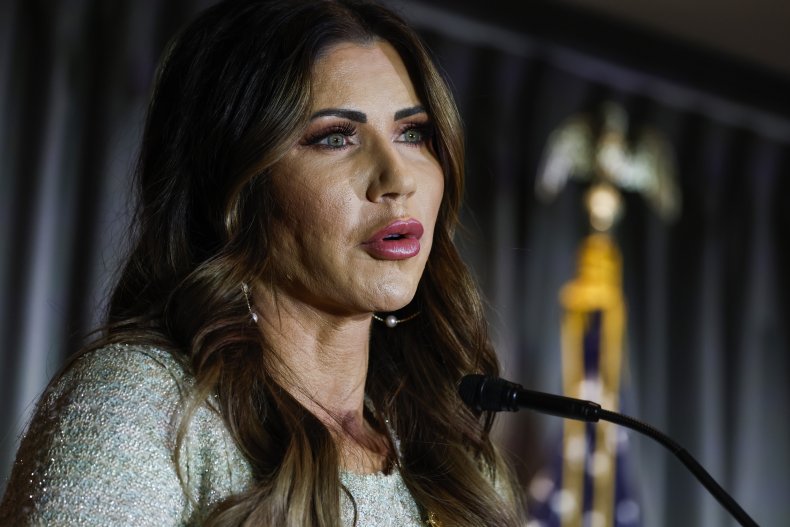May 10, 2024
Source: Jacobin

Holocaust scholar and pro-Palestine activist Norman Finkelstein expresses his support for the student protests, insisting on the importance of free speech and uniting the majority of Americans around solidarity with Gaza.
On April 21, 2024, Holocaust scholar and prominent pro-Palestine activist Norman Finkelstein visited the Gaza solidarity encampment at Columbia University. Finkelstein expressed his support and admiration for the student protesters, urging them to focus on bringing in the widest possible constituency into the Palestine solidarity movement and insisting on the vital importance of free speech and academic freedom for the Palestinian cause. We reprint his remarks here; the transcript has been edited for length and clarity.
I don’t want to claim any kind of expertise, and I have to always be careful of appearing to be condescending or patronizing, or [claiming to be] all-wise in these matters. I would simply say, based on my experience, the most important things are organization, leadership, and having clear objectives.
Clear objectives means basically two things. One is slogans that are going to unite and not divide. In my youth, when I was your age, I was what was called back in the day a “Maoist” — a follower of Chairman Mao in China. One of the slogans that was famously associated with him was “Unite the many to defeat the few.”
That means, at any juncture in the political struggle, you have to figure out how you can unite the many and isolate the few with a clear objective in mind. Obviously, you don’t want to unite the many with a goal or objective that is not your objective. You have to figure out, having your objective in mind, what is the slogan that will work the best to unite the many and defeat the few?
I was gratified that the movement as a whole, shortly after October 7, spontaneously and intuitively grasped, in my opinion, the right slogan: “Cease-fire now!” Some of you might think, in retrospect, what was so brilliant about that slogan? Wasn’t it obvious?
But in fact political slogans are never obvious. There are all sorts of routes and paths and byways that people can go down that are destructive to the movement. It wasn’t a leadership decision, I don’t think; it was a spontaneous, intuitive sense by the protesters that the right slogan at this moment is “Cease-fire now.”
I would also say, in my opinion, the slogans have to be as clear as possible, leaving no room for ambiguity or misinterpretation, which can be exploited to discredit a movement. If you take the history of struggle, there was the famous slogan going back to the late 1800s, “The eight-hour working day.” It was a clear slogan.
More recent, in your own living memory — for all the disappointments, in my opinion, of the Bernie Sanders presidential candidacy — one of the geniuses of his candidacy, because he had forty or fifty years of experience on the Left, [was the slogan] “Medicare for all.” You might think, what’s so smart about that slogan? He knew that he could reach 80 percent of Americans with that slogan. He knew that “Abolish student debt” and “Free college tuition” would resonate with a large part of his potential constituency.
He didn’t go beyond what was possible at that particular moment. I do think he reached what we might call “the political limit.” The limit at that point in his candidacy was probably jobs for all, public works programs, a Green New Deal, Medicare for All, abolish student debt, and free college tuition. Those were the right slogans. It may seem trivial, but it really is not. It takes a lot of hard work and sensitivity to the constituency that you’re trying to reach to figure out the right slogans.
Free Gaza, Free Speech
My own view is that some of the slogans of the current movement don’t work. The future belongs to you guys and not to me, and I’m a strong believer in democracy. You have to decide for yourselves. But in my view, you have to pick the slogans which are not ambiguous, leaving no wiggle room for misinterpretation, and which have the biggest likelihood at a given political moment of reaching the largest number of people. That’s my political experience.
I believe the “Cease-fire now” slogan is most important. On a college campus, that slogan should be twinned with the slogan of “Free speech.” If I were in your situation, I would say “Free Gaza, free speech” — that should be the slogan. Because I think, on a college campus, people have a real problem defending the repression of speech.
In recent years, because of the emergence of the identity-politics, cancel-culture ambiance on college campuses, the whole issue of free speech and academic freedom has become severely clouded. I have opposed any restrictions on free speech, and I oppose the identity-politics cancel culture on the grounds of preserving free speech.
I’ll say — not as a point of pride or egotism or to say “I told you so,” but just as a factual matter — in the last book I wrote, I explicitly said that if you use the standard of hurt feelings as a ground to stifle or repress speech, when Palestinians protest this, that, or the other, Israeli students are going to use the claim of hurt feelings, pained emotions, and that whole language and vocabulary, which is so easily turned against those who have been using it in the name of their own cause.
That was a disaster waiting to happen. I wrote about it because I knew what would happen, though obviously I could not have predicted the scale after October 7. But it was perfectly obvious what was going to happen.
In my opinion, the most powerful weapon you have is the weapon of truth and justice. You should never create a situation where you can be silenced on the grounds of feelings and emotions. If you listened to [Columbia president Minouche Shafik’s] remarks, it was all about hurt feelings, feeling afraid. That whole language has completely corrupted the notion of free speech and academic freedom.
You now have that experience, and hopefully going forward that language and those concepts will be jettisoned from a movement that describes itself as belonging to a leftist tradition. It’s a complete catastrophe when that language infiltrates leftist discourse, as you are seeing now.
I’m going to be candid with you, and I don’t make any claim to infallibility — I’m simply stating based on my own experience in politics: I don’t agree with the slogan “From the river to the sea, Palestine will be free.” It’s very easy to amend and just say, “From the river to the sea, Palestinians will be free.” That simple, little amendment drastically reduces the possibility of your being manipulatively misunderstood.
But when I was hearing that this slogan causes pain, anguish, fear, I have to ask myself a simple question. What does the slogan “We support the IDF” convey? The Israel Defense Forces, right now, is a genocidal army. Why are you allowed to have public support at this moment for a genocidal state and a genocidal army?
The language doesn’t seem as provocative — “We support the IDF.” But the content is ten thousand times more offensive and more outrageous to any, so to speak, civilized mind and civilized heart than the “From the river to the sea” slogan. The only reason there is an argument about that slogan — even though, as I said, I disagree with it, but that’s a separate matter whether I agree or disagree — is because we have legitimized this notion that hurt feelings are grounds for stifling speech. That to me is totally unacceptable; it’s wholly alien to the notion of academic freedom.
Some of you might say, that’s a bourgeois notion, it’s socially constructed, and all that other crap. I don’t believe that at all. You read the most eloquent defenses of unhindered, untrammeled freedom of speech by people like Rosa Luxemburg, who was, by any reckoning, an extraordinary individual and an extraordinary revolutionary. But being both did not mean she would accept any curbs on the principle of free speech, for two reasons.
Number one, no radical movement can make any kind of progress unless it has clarity about its goals and clarity about what it might be doing that’s wrong. You’re always engaging in course corrections. Everybody makes mistakes. Unless you have free speech, you don’t know what you’re doing that’s wrong.
Number two, the truth is not an enemy to oppressed peoples, and it’s certainly not an enemy to the people of Gaza. So we should maximize our commitment to free speech so as to maximize the dissemination of what’s true about what’s happening in Gaza — and not allow any excuse for repressing that truth.
What Are We Trying to Accomplish?
You’re doing ten thousand things right, and it’s deeply moving what you’ve achieved and accomplished, and the fact that many of you are putting your futures on the line is very impressive. I remember during the anti–Vietnam War movement, there were young people who wanted to go to medical school — and if you got arrested, you weren’t going to medical school. Many people struggled with the choice between getting arrested for the cause. It wasn’t an abstract cause — by the end of the war, the estimate was that between two and three million Vietnamese had been killed. It was an unfolding horror show every day.
People struggled with whether they would risk their entire futures. Many of you come from backgrounds where it was a real struggle to get to where you are today, to Columbia University. So I deeply respect your courage, your conviction, and every opportunity I have I acknowledge the incredible conviction and tenacity of your generation, which in many ways is more impressive than my own, for the reason that, in my generation, you can’t deny that an aspect of the antiwar movement was the fact that the draft lay on a lot of people. You could get the student deferment for the four years that you’re in college, but once the deferment passed, there was a good chance you were going over there and you were coming back in a body bag.
So there was an element of self-concern. Whereas you young people, you’re doing it for a tiny, stateless people halfway around the world. That’s deeply moving, deeply impressive, and deeply inspiring.
With that as an introduction, to return to my initial remarks: I said any movement has to ask itself: What is its goal? What is its objective? What is it trying to achieve? A few years ago, “From the river to the sea” was a slogan of the movement. I remember in the 1970s, one of the slogans was, “Everyone should know, we support the PLO [Palestine Liberation Organization]” — which was not an easy slogan to shout on Fifth Avenue in the 1970s. I vividly recall looking at the rooftops and waiting for a sniper to dispatch me to eternity at an early age.
However, there’s a very big difference when you’re essentially a political cult and you can shout any slogan that you like, because it has no public repercussions or reverberations. You’re essentially talking to yourself. You’re setting up a table on campus, giving out literature for Palestine; you might get five people who are interested. There’s a big difference between that situation and the situation you’re in today, where you have a very large constituency that you could potentially and realistically reach.
You have to adjust to the new political reality that there are large numbers of people, probably a majority, who are potentially receptive to your message. I understand that sometimes a slogan is one that gives spirit to those who are involved in the movement. Then you have to figure out the right balance between the spirit that you want to inspire in your movement and the audience or the constituency out there that’s not part of the movement that you want to reach.
I believe one has to exercise — not in a conservative sense, but a radical sense — in a moment like this, maximum responsibility to get out of one’s navel, to crawl out of one’s ego, and to always keep in mind the question: What are we trying to accomplish at this particular moment?

Holocaust scholar and pro-Palestine activist Norman Finkelstein expresses his support for the student protests, insisting on the importance of free speech and uniting the majority of Americans around solidarity with Gaza.
On April 21, 2024, Holocaust scholar and prominent pro-Palestine activist Norman Finkelstein visited the Gaza solidarity encampment at Columbia University. Finkelstein expressed his support and admiration for the student protesters, urging them to focus on bringing in the widest possible constituency into the Palestine solidarity movement and insisting on the vital importance of free speech and academic freedom for the Palestinian cause. We reprint his remarks here; the transcript has been edited for length and clarity.
I don’t want to claim any kind of expertise, and I have to always be careful of appearing to be condescending or patronizing, or [claiming to be] all-wise in these matters. I would simply say, based on my experience, the most important things are organization, leadership, and having clear objectives.
Clear objectives means basically two things. One is slogans that are going to unite and not divide. In my youth, when I was your age, I was what was called back in the day a “Maoist” — a follower of Chairman Mao in China. One of the slogans that was famously associated with him was “Unite the many to defeat the few.”
That means, at any juncture in the political struggle, you have to figure out how you can unite the many and isolate the few with a clear objective in mind. Obviously, you don’t want to unite the many with a goal or objective that is not your objective. You have to figure out, having your objective in mind, what is the slogan that will work the best to unite the many and defeat the few?
I was gratified that the movement as a whole, shortly after October 7, spontaneously and intuitively grasped, in my opinion, the right slogan: “Cease-fire now!” Some of you might think, in retrospect, what was so brilliant about that slogan? Wasn’t it obvious?
But in fact political slogans are never obvious. There are all sorts of routes and paths and byways that people can go down that are destructive to the movement. It wasn’t a leadership decision, I don’t think; it was a spontaneous, intuitive sense by the protesters that the right slogan at this moment is “Cease-fire now.”
I would also say, in my opinion, the slogans have to be as clear as possible, leaving no room for ambiguity or misinterpretation, which can be exploited to discredit a movement. If you take the history of struggle, there was the famous slogan going back to the late 1800s, “The eight-hour working day.” It was a clear slogan.
More recent, in your own living memory — for all the disappointments, in my opinion, of the Bernie Sanders presidential candidacy — one of the geniuses of his candidacy, because he had forty or fifty years of experience on the Left, [was the slogan] “Medicare for all.” You might think, what’s so smart about that slogan? He knew that he could reach 80 percent of Americans with that slogan. He knew that “Abolish student debt” and “Free college tuition” would resonate with a large part of his potential constituency.
He didn’t go beyond what was possible at that particular moment. I do think he reached what we might call “the political limit.” The limit at that point in his candidacy was probably jobs for all, public works programs, a Green New Deal, Medicare for All, abolish student debt, and free college tuition. Those were the right slogans. It may seem trivial, but it really is not. It takes a lot of hard work and sensitivity to the constituency that you’re trying to reach to figure out the right slogans.
Free Gaza, Free Speech
My own view is that some of the slogans of the current movement don’t work. The future belongs to you guys and not to me, and I’m a strong believer in democracy. You have to decide for yourselves. But in my view, you have to pick the slogans which are not ambiguous, leaving no wiggle room for misinterpretation, and which have the biggest likelihood at a given political moment of reaching the largest number of people. That’s my political experience.
I believe the “Cease-fire now” slogan is most important. On a college campus, that slogan should be twinned with the slogan of “Free speech.” If I were in your situation, I would say “Free Gaza, free speech” — that should be the slogan. Because I think, on a college campus, people have a real problem defending the repression of speech.
In recent years, because of the emergence of the identity-politics, cancel-culture ambiance on college campuses, the whole issue of free speech and academic freedom has become severely clouded. I have opposed any restrictions on free speech, and I oppose the identity-politics cancel culture on the grounds of preserving free speech.
I’ll say — not as a point of pride or egotism or to say “I told you so,” but just as a factual matter — in the last book I wrote, I explicitly said that if you use the standard of hurt feelings as a ground to stifle or repress speech, when Palestinians protest this, that, or the other, Israeli students are going to use the claim of hurt feelings, pained emotions, and that whole language and vocabulary, which is so easily turned against those who have been using it in the name of their own cause.
That was a disaster waiting to happen. I wrote about it because I knew what would happen, though obviously I could not have predicted the scale after October 7. But it was perfectly obvious what was going to happen.
In my opinion, the most powerful weapon you have is the weapon of truth and justice. You should never create a situation where you can be silenced on the grounds of feelings and emotions. If you listened to [Columbia president Minouche Shafik’s] remarks, it was all about hurt feelings, feeling afraid. That whole language has completely corrupted the notion of free speech and academic freedom.
You now have that experience, and hopefully going forward that language and those concepts will be jettisoned from a movement that describes itself as belonging to a leftist tradition. It’s a complete catastrophe when that language infiltrates leftist discourse, as you are seeing now.
I’m going to be candid with you, and I don’t make any claim to infallibility — I’m simply stating based on my own experience in politics: I don’t agree with the slogan “From the river to the sea, Palestine will be free.” It’s very easy to amend and just say, “From the river to the sea, Palestinians will be free.” That simple, little amendment drastically reduces the possibility of your being manipulatively misunderstood.
But when I was hearing that this slogan causes pain, anguish, fear, I have to ask myself a simple question. What does the slogan “We support the IDF” convey? The Israel Defense Forces, right now, is a genocidal army. Why are you allowed to have public support at this moment for a genocidal state and a genocidal army?
The language doesn’t seem as provocative — “We support the IDF.” But the content is ten thousand times more offensive and more outrageous to any, so to speak, civilized mind and civilized heart than the “From the river to the sea” slogan. The only reason there is an argument about that slogan — even though, as I said, I disagree with it, but that’s a separate matter whether I agree or disagree — is because we have legitimized this notion that hurt feelings are grounds for stifling speech. That to me is totally unacceptable; it’s wholly alien to the notion of academic freedom.
Some of you might say, that’s a bourgeois notion, it’s socially constructed, and all that other crap. I don’t believe that at all. You read the most eloquent defenses of unhindered, untrammeled freedom of speech by people like Rosa Luxemburg, who was, by any reckoning, an extraordinary individual and an extraordinary revolutionary. But being both did not mean she would accept any curbs on the principle of free speech, for two reasons.
Number one, no radical movement can make any kind of progress unless it has clarity about its goals and clarity about what it might be doing that’s wrong. You’re always engaging in course corrections. Everybody makes mistakes. Unless you have free speech, you don’t know what you’re doing that’s wrong.
Number two, the truth is not an enemy to oppressed peoples, and it’s certainly not an enemy to the people of Gaza. So we should maximize our commitment to free speech so as to maximize the dissemination of what’s true about what’s happening in Gaza — and not allow any excuse for repressing that truth.
What Are We Trying to Accomplish?
You’re doing ten thousand things right, and it’s deeply moving what you’ve achieved and accomplished, and the fact that many of you are putting your futures on the line is very impressive. I remember during the anti–Vietnam War movement, there were young people who wanted to go to medical school — and if you got arrested, you weren’t going to medical school. Many people struggled with the choice between getting arrested for the cause. It wasn’t an abstract cause — by the end of the war, the estimate was that between two and three million Vietnamese had been killed. It was an unfolding horror show every day.
People struggled with whether they would risk their entire futures. Many of you come from backgrounds where it was a real struggle to get to where you are today, to Columbia University. So I deeply respect your courage, your conviction, and every opportunity I have I acknowledge the incredible conviction and tenacity of your generation, which in many ways is more impressive than my own, for the reason that, in my generation, you can’t deny that an aspect of the antiwar movement was the fact that the draft lay on a lot of people. You could get the student deferment for the four years that you’re in college, but once the deferment passed, there was a good chance you were going over there and you were coming back in a body bag.
So there was an element of self-concern. Whereas you young people, you’re doing it for a tiny, stateless people halfway around the world. That’s deeply moving, deeply impressive, and deeply inspiring.
With that as an introduction, to return to my initial remarks: I said any movement has to ask itself: What is its goal? What is its objective? What is it trying to achieve? A few years ago, “From the river to the sea” was a slogan of the movement. I remember in the 1970s, one of the slogans was, “Everyone should know, we support the PLO [Palestine Liberation Organization]” — which was not an easy slogan to shout on Fifth Avenue in the 1970s. I vividly recall looking at the rooftops and waiting for a sniper to dispatch me to eternity at an early age.
However, there’s a very big difference when you’re essentially a political cult and you can shout any slogan that you like, because it has no public repercussions or reverberations. You’re essentially talking to yourself. You’re setting up a table on campus, giving out literature for Palestine; you might get five people who are interested. There’s a big difference between that situation and the situation you’re in today, where you have a very large constituency that you could potentially and realistically reach.
You have to adjust to the new political reality that there are large numbers of people, probably a majority, who are potentially receptive to your message. I understand that sometimes a slogan is one that gives spirit to those who are involved in the movement. Then you have to figure out the right balance between the spirit that you want to inspire in your movement and the audience or the constituency out there that’s not part of the movement that you want to reach.
I believe one has to exercise — not in a conservative sense, but a radical sense — in a moment like this, maximum responsibility to get out of one’s navel, to crawl out of one’s ego, and to always keep in mind the question: What are we trying to accomplish at this particular moment?
Norman Finkelstein received his PhD from the Princeton University Politics Department in 1987. He is the author of many books that have been translated into 60 foreign editions, including THE HOLOCAUST INDUSTRY: Reflections on the exploitation of Jewish suffering, GAZA: An inquest into its martyrdom, and most recently, I ACCUSE! Herewith a proof beyond reasonable doubt that ICC Chief Prosecutor Fatou Bensouda whitewashed Israel. He is currently writing a book tentatively titled, I'll Burn That Bridge When I Get To It: Politically Incorrect Thoughts on Cancel Culture and Academic Freedom In the year 2020, Norman Finkelstein was named the fifth most influential political scientist in the world.


